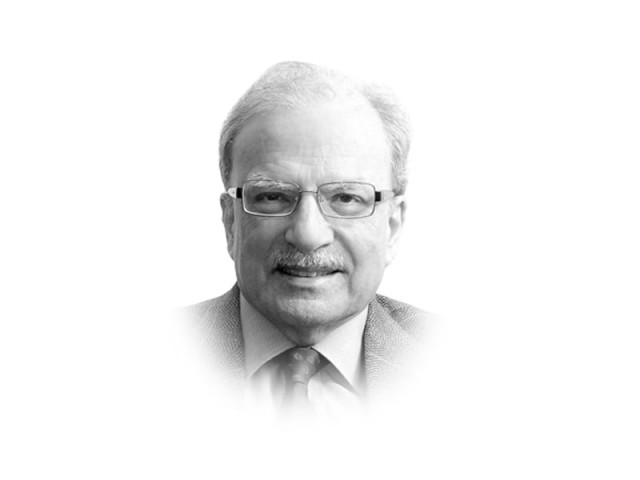Understanding the sources of radicalism
For both al Qaeda & IS, social networks became handy recruiting devices for converting the disgruntled to their cause

The writer is a former caretaker finance minister and served as vice-president at the World Bank
Some of the IS’s support comes from unlikely places. It has attracted thousands of young men and women to fight for its cause. Many have come from Europe and some from the United States. They — but not all — belong to the Muslim diasporas formed over the last several decades by the migration of the hundreds of thousands of people from crowded countries in Asia and Africa. Many in these relatively new migrant communities have not been fully integrated into the cultures into which they have moved. Their resentment is one reason for the attraction of extremism such as that espoused by the IS.
However, as revealed by a detailed investigation carried by The New York Times — a story it spread over three and half print pages, unusually long for the newspaper — the IS was also reaching out to non-Muslims. The newspaper investigated the case of a young Christian woman from a town in the western state of Washington, who first converted to Islam and then was attracted to the IS. The paper called her Alex — she and her family did not wish her identity to be revealed or told about their location — and described her drift towards the IS. “Alex’s online circle — involving several dozen accounts, some operated by people who directly identified themselves as members of the Islamic State, or whom terrorism analysts believe to be directly linked to the group — collectively spent thousands of hours engaging her over more than six months. They sent her money, and plied her with gifts of chocolate. They indulged her curiosity and calmed her apprehensions toward the hardline theological concepts that ISIS is built on.”
But the disgruntled Muslims from the West are not the only ones attracted to the various versions of extremism. The youth in the parts of the Muslim world where political systems remain relatively underdeveloped are also being attracted. Each community of thoroughly alienated people are in contact with the other via the internet. This way of communication is one of the adverse consequences of the process of ‘globalisation’ that has been celebrated by such influential economists as the Nobel Laureate Joseph Stiglitz and the Financial Times’ Martin Wolf. Both saw globalisation working in favour of less developed nations who, because of the ease with which capital and information could flow, would more easily become integrated into the international system of production. The flow of information also made investors in the countries with capital to spare aware of the opportunities that were available in distant places. Both portfolio investment and foreign direct investment increased significantly and went into the sectors and areas in which traditional capital flows had not gone.
But these and other writers did not see the negative aspect of the information technology revolution. For both al Qaeda and the IS, social networks became handy recruiting devices for converting the disgruntled to their cause.
The IS, in other words, is a phenomenon that has combined a number of changes occurring in a rapidly globalising world. A particularly gruesome example of this kind of radicalisation came in late June 2015 when a lone 24-year-old Tunisian gunman shot and killed 35 tourists, mostly British, at a resort hotel near Tunis. Seifuddin Rezgui, the gunman who was shot dead by the police, gave no indication to his friends and families that he had been so thoroughly radicalised that he was prepared to take so many innocent lives. The Tunisian authorities uncovered a large network of extremists, most of them sympathetic to the IS’s cause, put forward by the IS. According to an account in The New York Times, “Mr Rezgui’s Facebook page revealed extremist leanings. His profile photos included the logos of his favourite soccer team, Club African, but also the black banner of the Islamic State, which he made his cover photo in June 2014.” The moderate parts of the Muslim world, therefore, must recognise the disturbing fact that right in their midst are young people who want a very different kind of state than the one in which they currently live in. For these nations, modernisation has become a challenge.
Published in The Express Tribune, July 6th, 2015.
Like Opinion & Editorial on Facebook, follow @ETOpEd on Twitter to receive all updates on all our daily pieces.













COMMENTS
Comments are moderated and generally will be posted if they are on-topic and not abusive.
For more information, please see our Comments FAQ